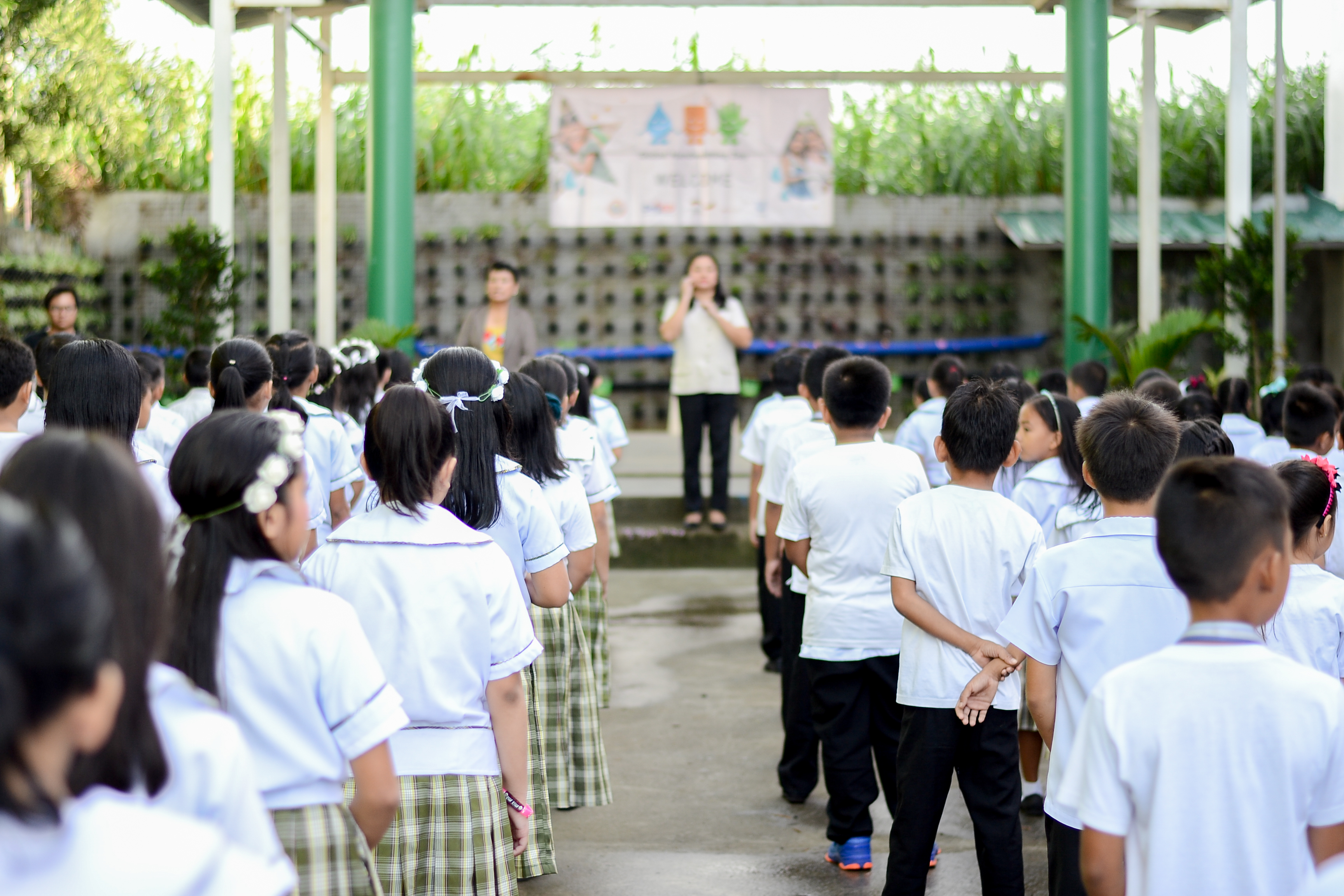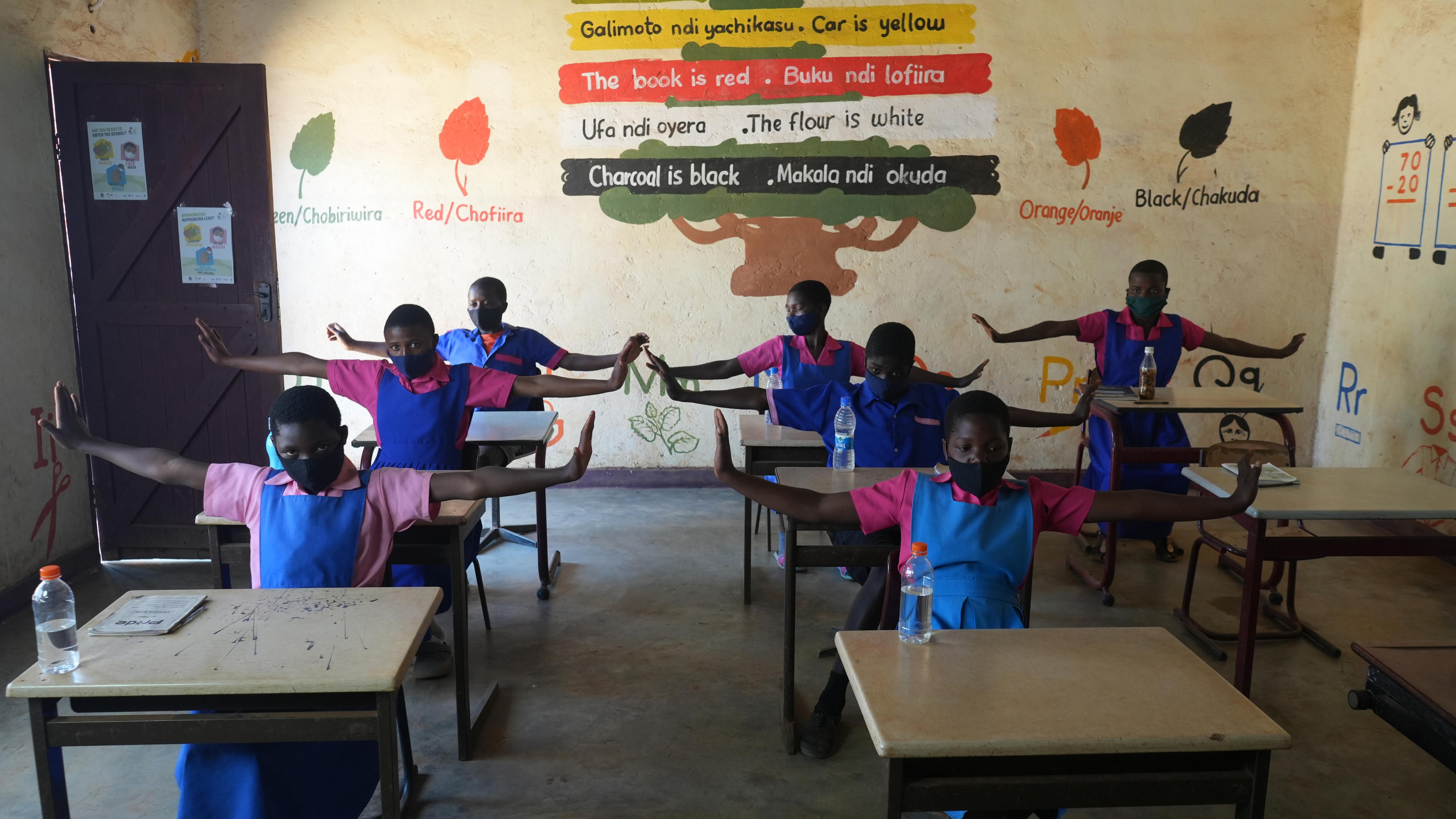Hygiene lesson in a school as part of the GIZ programme “Fit for School” in Southeast Asia
Copyright© Q pix production
Special funds for vaccine logistics Africa and Asia: Hygiene measures, information, vaccination offers
Especially in low- and middle-income countries, inadequate water and sanitation costs more than half a million human lives every year, according to the World Health Organisation (WHO), even without a pandemic.
Worldwide, 3.6 billion people do not have access to suitable sanitary facilities, including about 540 million schoolchildren. In Indonesia, Laos and the Philippines - all middle-income countries - many schools lack washrooms and clean water. Sometimes there is a lack of financial resources to build, operate, renovate or maintain sanitary facilities. Often, however, there is also a lack of knowledge about the importance of hygiene and how infection protection can be implemented in schools – especially when there is a global pandemic.
Hygiene measures must be part of everyday school life
In a school in Malawi, children learn how to prevent a COVID-19 infection.
For many years, the “Fit for School” programme (External link) of the Federal Ministry for Economic Cooperation and Development (BMZ), implemented by GIZ, has been supporting education ministries in improving water supply and sanitation in schools. It is also about making hygiene-related behaviours such as hand washing or tooth brushing a daily routine for the pupils and having them spread this routine in their families. In addition to Southeast Asia, the programme is also active in some African countries, including Malawi, South Sudan and Zambia.
In Malawi, an online course on infection prevention and control in schools was developed as part of the Last-Mile Initiative. International cooperation partners were the Hygiene and Behaviour Change Coalition (External link) (HBCC) and the Stockholm International Water Institute (External link) (SIWI). The course is a means to reach school staff in the most efficient way possible with uniform information on a large scale.
Education against misinformation
Schools are also suitable environments to promote vaccination against the coronavirus and clarify any misinformation. In Indonesia and the Philippines, the “Fit for School” programme has launched education campaigns on social media and produced videos that are distributed via the channels of the education ministries.
Members of a Philippine youth network, too, have used social media to inform their peers about simple hygiene measures and the importance of the COVID-19 vaccination.
In southern and eastern Africa, social media is also being used to help raise awareness. The campaign (External link) “Waterproof – Dance4WASH” is being run in cooperation with the organisation Viva con Agua: the campaign spreads age-appropriate messages about hygiene, hand washing and vaccinations with dance, songs, murals and comics, working in cooperation with prominent influencers and musicians and dancers. In Malawi, Mozambique, South Africa, Zambia, Tanzania, Rwanda and Uganda, more than 500,000 children and young people between the ages of eight and 18 have already been reached by the campaign.
Mobile teams also vaccinate in remote areas
A particular strength of the Last-Mile Initiative is that it is designed to distribute vaccines even in remote places – for example in Laos. The COVID-19 vaccination rate there has steadily increased. However, in rural and difficult-to-reach areas, it has not been possible to provide sufficient vaccination.
Together with its cooperation partners Save the Children (External link) and Plan International Laos (External link), GIZ has set up mobile vaccination services and administered almost 61,000 vaccine doses in three provinces. For 30 per cent of the people reached, the vaccination was part of the basic immunisation against COVID-19; 70 per cent received a booster shot to strengthen their immune protection.
As at: 17/10/2023

